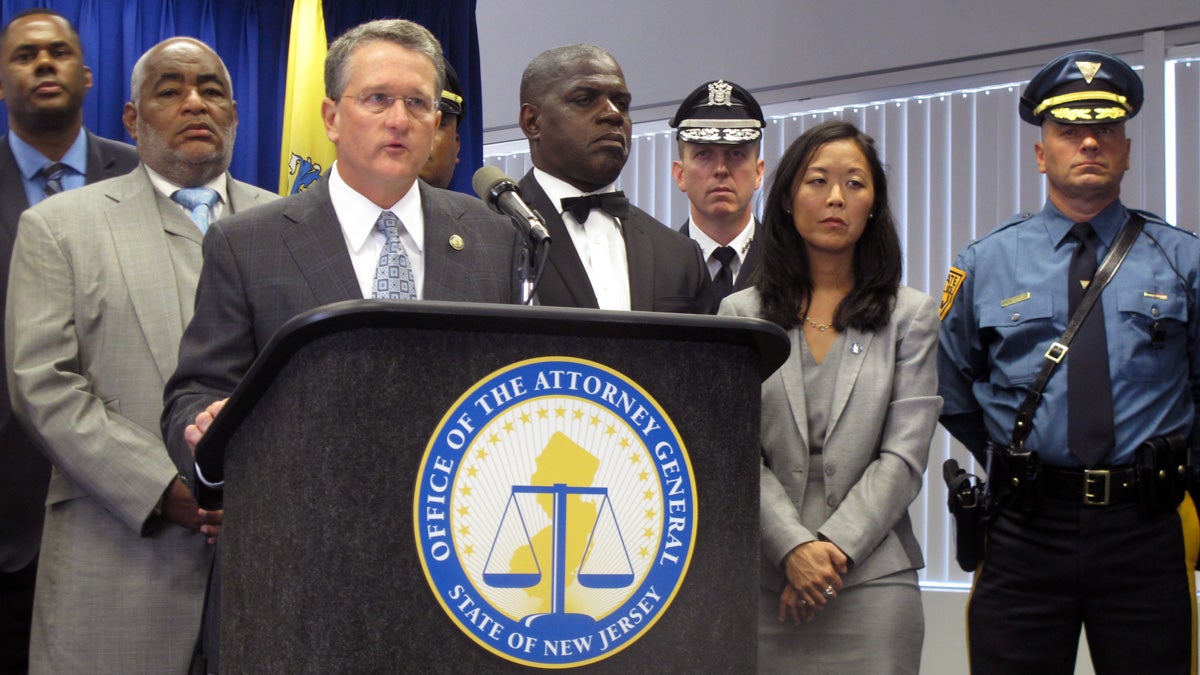New Jersey to outfit all state troopers with body cameras

New Jersey Acting Attorney General John Hoffman announces policies regarding police body cameras during a news conference Tuesday in Trenton. Hoffman said that New Jersey would provide all state troopers in the field with the cameras, putting it among the first wave of states to take such action. (AP Photo/Geoff Mulvihill)
Only a few police departments in New Jersey are now using body cameras, but that’s expected to change soon.
New Jersey State Police will spend $1.5 million to equip a thousand troopers with the body cameras by the middle of next year.
Acting state Attorney General John Hoffman said $2.5 million seized from criminals will provide funding for local police departments who want the cameras.
“The way to maintain mutual respect and trust between law enforcement and our communities is through accountability of both police and civilians,” he said Tuesday. “This compact high tech-device can go a long way in preserving and cementing that confidence and that trust.”
Hoffman is directing police to activate the cameras during traffic stops, frisks, and arrests — as well as incidents involving deadly force.
“In addition to helping police gather evidence, body cameras will act an objective witness in police-involved shootings and other use of force incidents so that truth rules the day, not emotion, not agendas, and not personal bias,” he said.
Willingboro’s department has used the cameras since February, and police Capt. Kenneth Strother said they’re an excellent tool to resolve complaints about police behavior.
“We see a happy public, and we see a happy officer, because now they have proof to prove what they’re saying,” he said during a news conference in Trenton. “And the public, they’re being taken a little more seriously. Because what they told us happened, we can see whether it happened or not.”
Steffie Bartley with the National Action Network said the body cameras are long overdue.
“I’m looking forward to seeing how this is all going to pan out and hopefully use this as model for the whole country,” Bartley said. “It will help the community tremendously because now we will have video footage to actually say what really happened.”
Hoffman is also revamping procedures for investigating deadly force by police in New Jersey.
A new directive requires police departments to be “walled off” from a case when one of its officers is the subject of an investigation. It also establishes model grand jury instructions for such cases to ensure they’re presented uniformly.
“At the conclusion of any deadly force investigation that results in either no grand jury presentation or no charges from the grand jury, it requires the release of information to the public explaining the circumstances of the incident and the findings of the investigation with respect to the lawfulness of the police use of force,” Hoffman said.
The changes are intended to increase transparency and the public’s confidence in police, he said.
WHYY is your source for fact-based, in-depth journalism and information. As a nonprofit organization, we rely on financial support from readers like you. Please give today.




